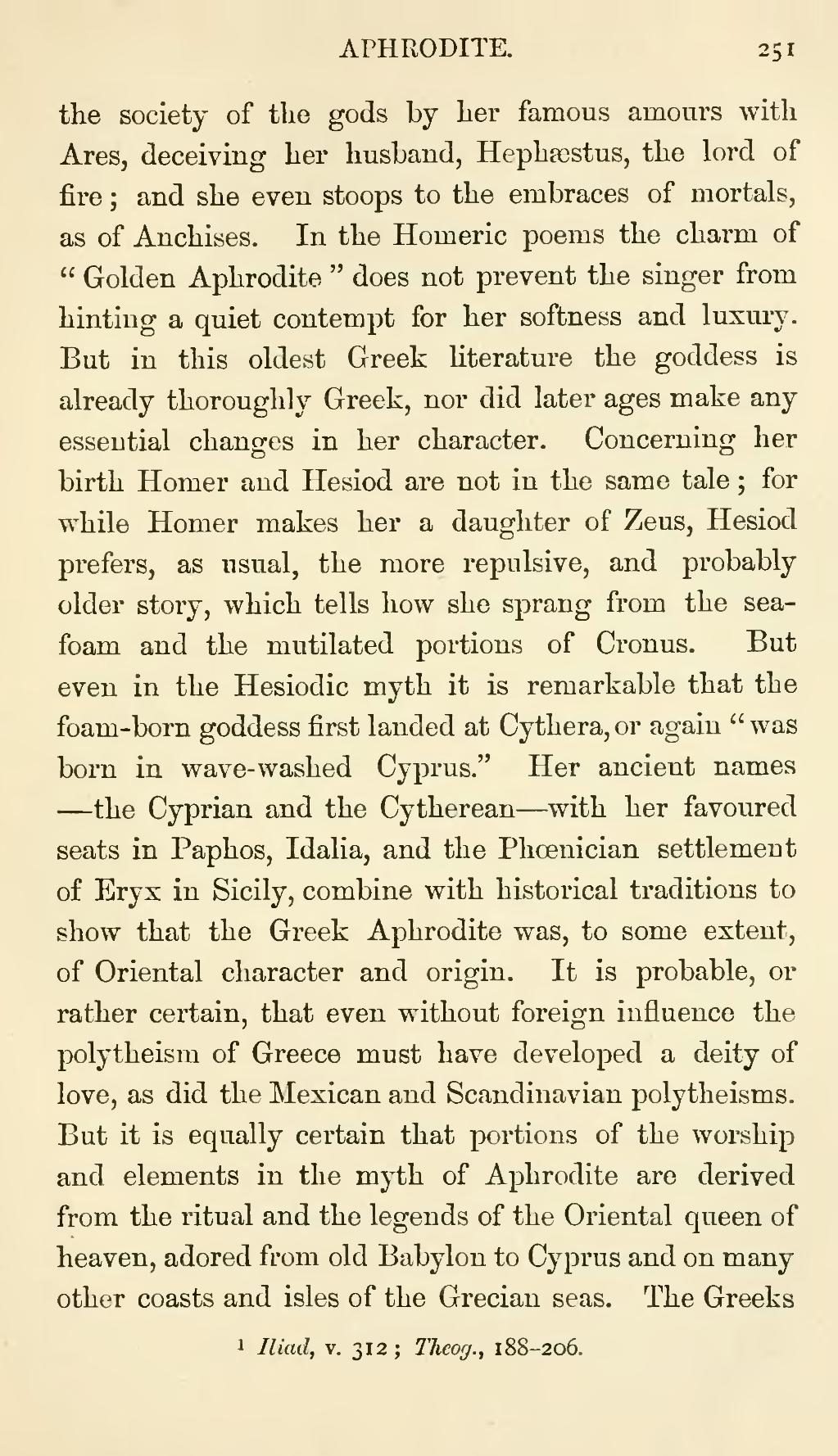the society of the gods by her famous amours with Ares, deceiving her husband, Hephæstus, the lord of fire; and she even stoops to the embraces of mortals, as of Anchises. In the Homeric poems the charm of "Golden Aphrodite" does not prevent the singer from hinting a quiet contempt for her softness and luxury. But in this oldest Greek literature the goddess is already thoroughly Greek, nor did later ages make any essential changes in her character. Concerning her birth Homer and Hesiod are not in the same tale; for while Homer makes her a daughter of Zeus, Hesiod prefers, as usual, the more repulsive, and probably older story, which tells how she sprang from the sea-foam and the mutilated portions of Cronus.[1] But even in the Hesiodic myth it is remarkable that the foam-born goddess first landed at Cythera, or again "was born in wave-washed Cyprus." Her ancient names—the Cyprian and the Cytherean—with her favoured seats in Paphos, Idalia, and the Phœnician settlement of Eryx in Sicily, combine with historical traditions to show that the Greek Aphrodite was, to some extent, of Oriental character and origin. It is probable, or rather certain, that even without foreign influence the polytheism of Greece must have developed a deity of love, as did the Mexican and Scandinavian polytheisms. But it is equally certain that portions of the worship and elements in the myth of Aphrodite are derived from the ritual and the legends of the Oriental queen of heaven, adored from old Babylon to Cyprus and on many other coasts and isles of the Grecian seas. The Greeks
- ↑ Iliad, v. 312; Theog., 188–206.
